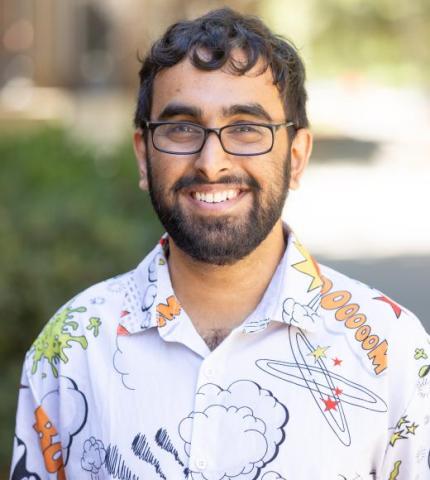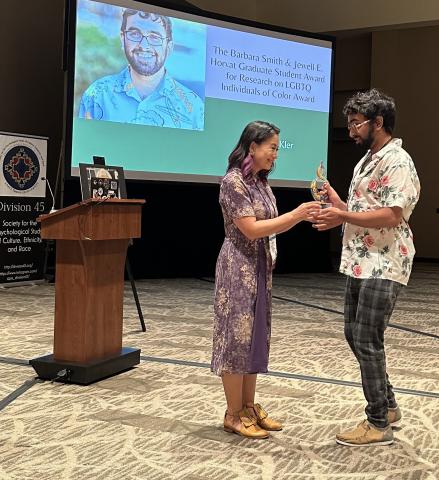
Meet Dr. Satveer Kler

Dr. Satveer Kler, Assistant Professor in the Clinical Psychology PhD program at PAU, brings a unique perspective to the study of intergenerational trauma and substance use among marginalized communities. His journey into this field was sparked by his clinical experiences with the children of immigrants, particularly those fleeing traumatic experiences like genocide or political violence.
"I saw a lot of ripple effects in my clinical work with them, especially in how they talked about their experiences and emotions," Dr. Kler reflects. "These effects seemed to be the same across multiple individuals with similar backgrounds as they demonstrated common emotional patterns and communication styles."
This observation led Dr. Kler to delve deeper into intergenerational trauma, an area he felt was underserved by traditional conceptualizations of single-event trauma like PTSD. His interest in substance use was further developed during an NIAAA Fellowship at the Medical University of South Carolina, where he noticed striking similarities between populations affected by intergenerational trauma and those with substance use disorders.
At PAU, Dr. Kler leads the Substance use and Intergenerational Trauma Social processes (SITS) Research Team. "The main purpose of developing this team is to contextualize the history of substance use and intergenerational trauma in marginalized communities," he explains. SITS primarily conducts qualitative research, examining individual stories and family histories to understand how factors like colonialism, displacement, family socialization messages, and cultural socialization messages inform the lived experiences of these populations.
Dr. Kler's approach to research is deeply rooted in critical qualitative methodologies. "One of the things I love most about critical qualitative research is that research becomes an act of co-constructing knowledge," he says. This collaborative approach between researchers and participants allows for a more nuanced understanding of complex issues.
In his teaching, particularly in the Cross-Cultural Issues in Psychology course, Dr. Kler emphasizes the importance of self-awareness. "We have to understand our family histories, cultural socialization messages, and unpack our own backgrounds and perspectives to become better practitioners," he explains. "It is really rewarding to see this unfold in students."
When asked about balancing empathy with scientific rigor in his research, Dr. Kler doesn't see them as mutually exclusive. "Being able to be attuned with what is very personal for participants requires also being human with them in that conversation and supporting them," he says. His research team incorporates resources and debriefings to support participants through the process of discussing their substance use or intergenerational trauma.

Dr. Kler receives the Barbara Smith and Jewell E. Horvat Award (2024)
Dr. Kler's work has not gone unnoticed in the field. He was recently honored with the Barbara Smith and Jewell E. Horvat Award from APA's Division 45 for his research, an achievement he describes as "humbling and validating."
Outside of his academic pursuits, Dr. Kler is an avid gamer with a particular fondness for Pokémon. "I like all things Pokémon, including Pokémon Violet. Right now, I'm doing another run through with the grass starter," he shares. He also enjoys reading fantasy books, watching horror movies, and spending time with family. Having grown up in the Southeast Bay, working at PAU means being closer to his roots.
Looking to the future, Dr. Kler hopes his focus on critical qualitative research will inform clinical practice and future interventions. "The richness of those stories can shape future treatments as a way of honoring their idiosyncratic contexts - whether that is family, social identity, or cultural contexts," he explains.
For students interested in pursuing research in trauma and substance use among marginalized communities, Dr. Kler offers valuable advice: "Getting involved in professional organizations is really important. There is no such thing as having too many mentors." He encourages students to carve out their niche while maintaining curiosity and intellectual humility.
As Dr. Kler continues his important work at PAU, he remains committed to bridging the gap between research and practice, always with an eye toward honoring the unique stories and contexts of marginalized communities.
